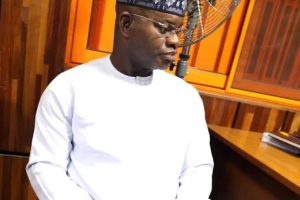Nigeria’s Senate and House of Representatives have announced a further delay to the resumption of their plenary sessions, pushing the date back to May 6th.
The two chambers had adjourned on March 27th for the Easter and Eid-el-Fitr holidays and were initially scheduled to reconvene on Tuesday, April 29th. However, a statement issued on Monday by the Clerk to the National Assembly, Kamoru Ogunlana, confirmed a one-week extension.
Mr. Ogunlana stated that the postponement was to allow senators and members of the House of Representatives to participate in upcoming Workers’ Day celebrations in their constituencies and attend to other local engagements.
“This extension allows Distinguished Senators and Honourable Members to participate in the Workers’ Day ceremony and attend to other engagements in their constituencies,” he said, apologising for any inconvenience caused.
The delay comes at a time when Nigeria is grappling with a range of significant challenges, including a worsening security situation and socio-political unrest across several states. Since the start of the 2025 legislative year on February 4th, the National Assembly has reportedly held plenary sessions only 24 times, raising concerns about legislative inactivity. Plenary sessions are the main forum for debating urgent national issues in the Nigerian parliament.
The extended recess means that legislative responses to several pressing matters will be further delayed. These include the resurgence of Boko Haram activity in Borno State, continued killings in Benue and Plateau States, and the rise of unregulated financial operations and investment scams. The unresolved recall process of a suspended senator and oversight of the emergency rule in Rivers State are also pending.
While the official reason for the extension is constituency engagement, there are local speculations of potential political motivations. Reports suggest some senators are dissatisfied with the leadership style of Senate President Godswill Akpabio, alleging a dictatorial approach. Some observers believe the extended recess may be intended to manage these internal tensions.
The 10th National Assembly has faced criticism for its slow legislative pace. Reports indicate that the Senate has yet to unveil its legislative agenda nearly two years after its inauguration, raising questions about accountability and a clear roadmap for the current legislative term.





Add Comment